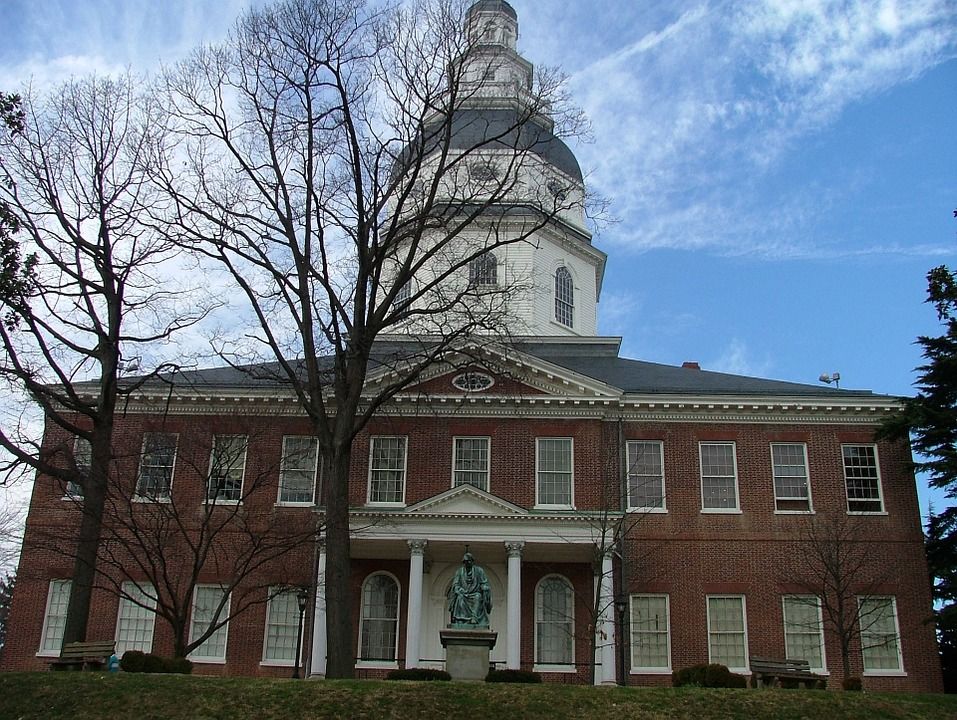Views expressed in opinion columns are the author’s own.
Most states in the mid-Atlantic have legalized sports betting in some capacity, though Maryland has been a little late to the party. This November, voters will have the opportunity to decide whether or not sports betting will be legalized in the Old Line State. Hundreds of thousands of dollars from companies such as DraftKings and FanDuel have been pumped into the state with the purpose of swaying voters to “Vote Yes on Question 2.”
While legalizing sports betting is the right move, it could have disastrous consequences if it’s not done correctly.
The group pushing the “Yes” line (led by DraftKings and FanDuel) has estimated that the legalization of sports betting would raise $40 million in annual tax revenue for the government. Language in the proposition stipulates that “the majority if not all of the funds raised will be spent on education.” Considering the enormous budget cuts to higher education from Gov. Larry Hogan’s office, some additional revenue would certainly be a helpful cushion for educators.
While more money for education is desperately needed, Question 2 brings with it some major caveats. Primarily, the language of the proposition is extremely vague and does not specify the precise locations at which sports betting would be allowed. While gambling in person can be extremely addictive, an individual is confined to gambling within the walls of a casino. The around-the-clock accessibility provided by online gambling, on the other hand, is potentially consuming.
An addiction to online sports betting psychologically functions similarly to an addiction to hard drugs. Is it just for the government to profit off of an addiction so potentially devastating, without any concrete deterrence mechanisms?
Generation Z, as it stands, has exhibited nearly double the rate of gambling addiction as millennials. It’s no secret plenty of college students around the country are involved in underground sports betting. Coupled with accessible, legal online sportsbooks, however, our online lifestyle and general familiarity with the internet could lead to a disturbing amount of young people developing a habit of sports betting.
Those who have a deep desire to bet on sports will find a way to do so regardless of its legality. The gambling industry, like drugs and sex work, has a thriving black market. The decision that Maryland voters have to make, then, is whether the societal cost of legalizing sports gambling outweighs its financial benefits.
If it weren’t for the fact that Washington, D.C., Delaware, Pennsylvania, New Jersey and West Virginia have already legalized sports betting, Maryland might be wise to reject Question 2 in favor of a more carefully crafted piece of legislation.
Since the other states have, however, it would be best to vote in favor of the bill in order to keep potential tax revenue from leaving the state. Maryland residents who want to bet on sports have plenty of nearby options to do so. Therefore, it would be wise for voters to legalize sports betting in order to keep Marylanders from spending their money elsewhere.
But some degree of caution is still necessary, given the risks associated with gambling. One important step would be to restrict sports betting to in-person sportsbooks. That may be an unrealistic hope, considering the amount of money being funneled into the state from the online gambling industry, but it would be the best middle ground from a moral and policy perspective.
No matter where betting is allowed, it’s vital for the government to step up its education around the potential risks of gambling. With the right mechanisms in place to help deter out-of-control gambling addictions, legalizing sports betting is the right decision.
Josh Binderman is a senior government and politics major. He can be reached at jmbinderman@gmail.com.



